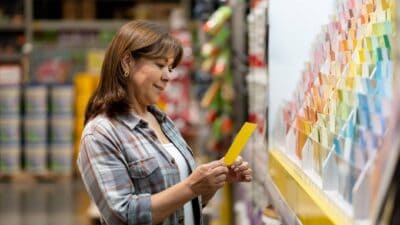Investors that own Wesfarmers Ltd (ASX: WES) shares are also owners of Bunnings, Australia's leading hardware business. In fact, it has such a strong lead that it's facing a pushback for how much profit it's making.
Bunnings is not the only business under the spotlight. This year, there has been a lot of political pressure on the supermarket businesses Woolworths Group Ltd (ASX: WOW) and Coles Group Ltd (ASX: COL), and Bunnings was included in the Senate analysis of price-setting practices and market power of major supermarkets.
Bunnings' power questioned
John Dahlsen, who has been the chair of Woolworths and the deputy chair of Myer Holdings Ltd (ASX: MYR), has been one of the people who have questioned Bunnings' market position this year.
Dahlsen also owns J C Dahlsen Pty Ltd, which was described in his submission to the senate as Australia's largest independent family-owned trade building supply business. So, he has specific insights into the situation for smaller players in the hardware space.
Dahlsen pointed out that Bunnings has a "dominant market share" in many categories and said that it produces a return of more than 60% on shareholder funds, which is "one of the highest retail returns in the world", and generates stronger returns than those in the supermarket segment.
He pointed out that Bunnings' "huge" market share in the hardware timber sector impacts suppliers and independents, but not necessarily consumers.
Dahlsen suggested that Bunnings has "huge power" over suppliers because of its volume, footprint, and concentration of customers. According to the submission, if a supplier wants to sell a decent volume, it will need to deal with Bunnings. He believes Bunnings is usually one of the biggest customers for each supplier.
He also warned that if Bunnings' store count kept growing, it could increase the cannibalisation of existing store sales. However, additional smaller Bunnings stores could tap smaller markets, which "will be a great threat to the remaining independents". Dahlsen noted that the independent share of the market is "gradually declining".
Acknowledgement of the positives of Bunnings
Dahlsen also noted some positives that owners of Wesfarmers shares would probably like to hear. He also complimented the hardware retailer, saying:
Bunnings is a brilliant world class model which has had a series of outstanding Chief Executives (like John Gillam and the current CEO Michael Schnider) who have been first class with strategy and operational performance.
…Bunnings has a huge and loyal customer following, and many would not consider shopping elsewhere. It is a very good one shop opportunity. Bunnings provides a clear profile of what shoppers can expect and appear not to be concerned about price particularly because of the convenience of range one stop shopping and the impact of the 10% beat marketing.
So, from the consumers point of view concentration or monopoly behaviour is irrelevant to them because Bunnings is delivering. There is nothing evil about concentration per se but how the operator manages the situation. The issue with Bunnings is the role of suppliers which places its competitors at a severe disadvantage. Bunnings has greater leverage over its suppliers than does Coles and Woolworths.
Foolish takeaway
Bunnings is certainly one of the strongest retail businesses in Australia, perhaps the strongest.
In the FY24 result, it reported increased profitability. Excluding the net property contribution, Bunnings' earnings before tax (EBT) grew by 2.6%. Its EBT margin, excluding property, rose from 11.8% in FY23 to 11.9% in FY24.
Most impressively, Bunnings' return on capital (ROC) increased to 69.2% in FY24, up from 65.4% in FY23.
It's clear Bunnings is a strong profit generator for the company, and it's probably the most important segment for Wesfarmers' shares.
While the retailer has been put under the spotlight, there have been no noteworthy political changes for the hardware business to deal with. There's no guarantee that will remain the case, of course. But, I'm not concerned enough not to call it a buy at this stage – I think it's a great business, with other solid profit-making businesses, including Kmart.
In my view, the 12% decline of the Wesfarmers share price since August 2024 makes it more appealing.








